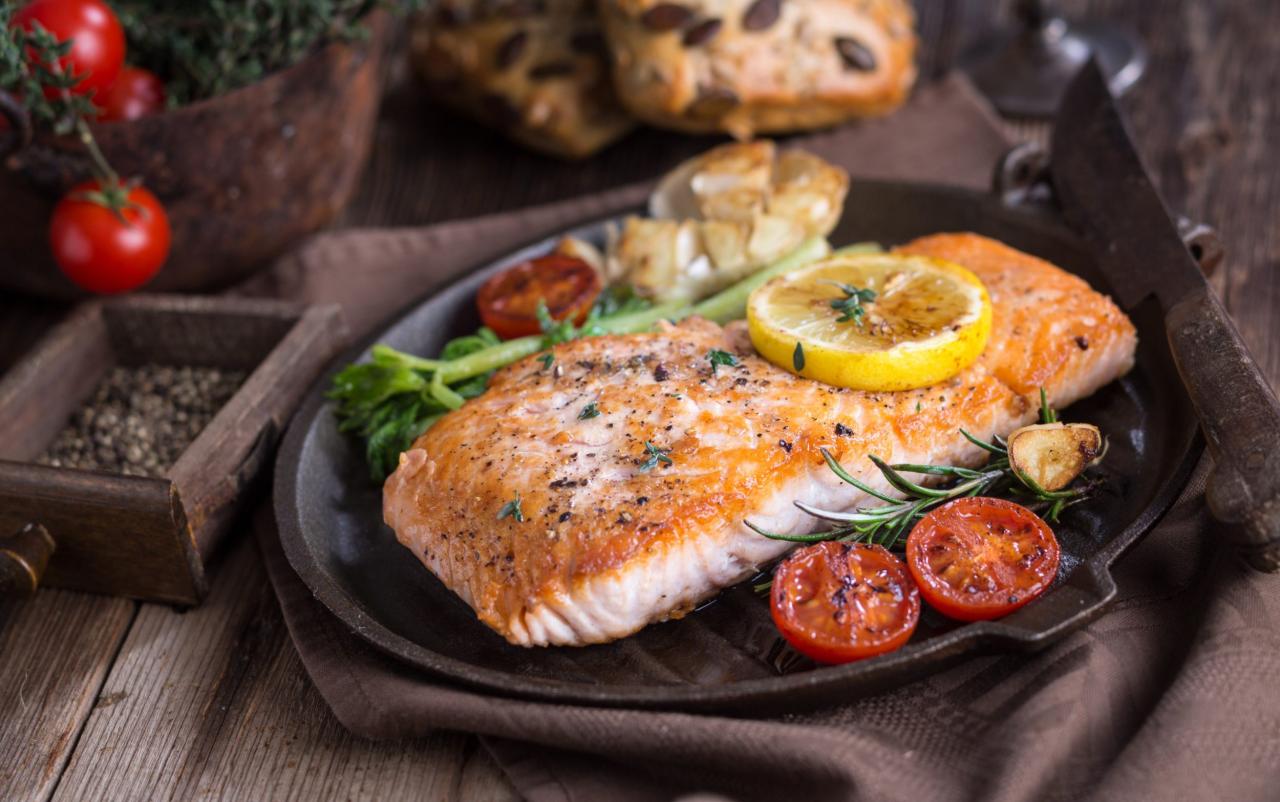In the realm of nutrition, pescetarianism stands out as a distinctive dietary approach that blends the health benefits of a vegetarian diet with the inclusion of fish and seafood. Join us as we delve into the world of famous pescetarians, exploring their motivations, dietary choices, and the impact of their lifestyle on their well-being and the environment.
From acclaimed actors to renowned musicians, the list of pescetarians is as diverse as it is inspiring. Their stories offer valuable insights into the practicalities and rewards of adopting a pescetarian diet, making this article a captivating read for anyone curious about this unique dietary path.
Famous Pescetarians
Pescetarianism, a diet that includes fish and other seafood but excludes meat and poultry, has gained popularity among individuals seeking a healthier and more sustainable lifestyle. Several notable figures have embraced this dietary approach, inspiring others to consider its benefits.
The following table presents a list of famous pescetarians, along with their profession, accomplishments, and reasons for adopting a pescetarian diet:
| Name | Profession | Accomplishments | Reasons for Pescetarianism |
|---|---|---|---|
| Natalie Portman | Actress | Academy Award winner, environmental activist | Ethical concerns about animal welfare |
| Ariana Grande | Singer, songwriter | Multiple Grammy Award winner, LGBTQ+ advocate | Health and environmental reasons |
| Zac Efron | Actor | Teen heartthrob, fitness enthusiast | Improved athletic performance and reduced inflammation |
| Jessica Chastain | Actress | Academy Award nominee, feminist | Ethical and environmental concerns |
| Russell Brand | Comedian, actor | Social activist, mental health advocate | Health and environmental reasons |
Health Benefits of a Pescetarian Diet
Embracing a pescetarian diet, characterized by the consumption of fish and seafood while excluding other meat sources, offers a myriad of health benefits. This dietary approach harnesses the nutritional prowess of aquatic life, providing an abundance of essential nutrients that contribute to overall well-being.
The inclusion of fish and seafood in a pescetarian diet serves as a rich source of omega-3 fatty acids, renowned for their anti-inflammatory properties. These fatty acids play a pivotal role in maintaining cardiovascular health, reducing the risk of heart disease, stroke, and arrhythmias.
Additionally, omega-3s support cognitive function, enhance brain health, and may even protect against age-related cognitive decline.
Heart Health
- Omega-3 fatty acids, particularly EPA and DHA, found in fish and seafood, possess anti-inflammatory properties that help reduce the risk of heart disease, stroke, and arrhythmias.
- Fish consumption has been linked to lower blood pressure and improved cholesterol levels, further contributing to cardiovascular health.
Cognitive Function, Famous pescetarians
- Omega-3 fatty acids are essential for brain health and cognitive function. They support neuron growth, improve memory, and enhance overall brain performance.
- Research suggests that a pescetarian diet may protect against age-related cognitive decline and reduce the risk of Alzheimer’s disease.
Other Health Benefits
- Fish and seafood are excellent sources of protein, essential for building and repairing tissues.
- They provide a range of vitamins and minerals, including vitamin D, selenium, iodine, and zinc, which support various bodily functions.
- A pescetarian diet may promote weight management due to the high satiety value of fish and seafood, which can help reduce overall calorie intake.
Challenges and Considerations

Pescetarianism offers numerous health benefits, but it also comes with certain challenges and considerations.
A pescatarian diet, sometimes referred to as pesco-vegetarian, is a type of semi-vegetarian diet that includes seafood, but excludes other types of meat. Pescatarians typically eat fish, shellfish, and other seafood, as well as plant-based foods like fruits, vegetables, and whole grains.
This type of diet can be beneficial for people who want to reduce their meat consumption while still getting the health benefits of eating seafood.
Social Situations
One challenge pescetarians may face is social situations where meat is the primary focus. Family gatherings, parties, and restaurant menus often revolve around meat-based dishes, which can make it difficult for pescetarians to find suitable options.
For those seeking a balanced and nutritious diet, a pescatarian lifestyle offers a unique approach. Define pescatarian as a dietary pattern that includes seafood as a primary source of protein while excluding all other meat products.
Meal Planning
Meal planning is another consideration for pescetarians. Ensuring adequate protein intake while avoiding meat can require careful planning. Pescetarians need to incorporate a variety of fish, seafood, and plant-based proteins into their diet to meet their nutritional needs.
Tips and Strategies
To overcome these challenges, pescetarians can adopt the following tips and strategies:
-
-*Communicate your dietary preferences
Inform friends and family about your pescetarianism and ask for their support in providing suitable food options.
-*Be prepared
When attending social events, bring your own pescetarian-friendly snacks or dishes to ensure you have something to eat.
-*Explore diverse cuisines
Experiment with cuisines that emphasize fish and seafood, such as Mediterranean, Japanese, or Thai.
-*Consult a healthcare professional
A registered dietitian or doctor can provide personalized guidance on meeting your nutritional needs as a pescetarian.
Pescetarian Recipes and Meal Ideas

Pescetarian diets offer a wide range of delicious and nutritious meal options. Here’s a collection of pescetarian recipes to inspire your culinary adventures, categorized for easy navigation.
These recipes cater to various tastes and preferences, ensuring you can enjoy a satisfying and balanced pescetarian lifestyle.
Appetizers
- Grilled Scallop Skewers with Lemon-Herb Marinade:Succulent scallops marinated in a zesty blend of lemon, herbs, and olive oil, grilled to perfection.
- Caprese Salad with Grilled Shrimp:A classic Italian salad with fresh tomatoes, mozzarella, basil, and grilled shrimp for a protein-packed twist.
- Smoked Salmon Bruschetta:Crisp bruschetta topped with smoked salmon, cream cheese, and capers for a savory and elegant appetizer.
Main Courses
- Pan-Seared Salmon with Roasted Vegetables:A healthy and flavorful dish featuring pan-seared salmon fillets paired with roasted vegetables like asparagus, carrots, and bell peppers.
- Shrimp Scampi with Linguine:A classic seafood pasta dish with plump shrimp sautéed in a garlic-butter sauce and served over linguine.
- Tuna Niçoise Salad:A refreshing and vibrant salad with tuna, boiled eggs, green beans, potatoes, and olives, dressed in a tangy vinaigrette.
Desserts
- Lemon Ricotta Cake with Blueberry Compote:A light and refreshing cake with a tangy lemon ricotta filling and a sweet blueberry compote.
- Fruit Salad with Honey-Lime Dressing:A healthy and vibrant dessert featuring a medley of fresh fruits tossed in a refreshing honey-lime dressing.
- Chocolate Avocado Pudding:A rich and creamy pudding made with ripe avocados, cocoa powder, and a touch of sweetness.
Environmental Impact
A pescetarian diet, while generally considered environmentally friendlier than a meat-based diet, still has implications on marine ecosystems. The fishing industry’s practices, including overfishing and destructive fishing methods, can harm fish populations and their habitats.
To minimize the environmental impact of a pescetarian diet, it’s crucial to choose sustainable seafood options. Look for seafood certified by organizations like the Marine Stewardship Council (MSC) or the Aquaculture Stewardship Council (ASC), which ensure responsible fishing practices.
Sustainable Seafood Choices
- Opt for smaller, less popular fish species:These fish have shorter lifespans and reproduce more frequently, making them more resilient to overfishing.
- Choose fish from well-managed fisheries:Look for fisheries that implement sustainable practices, such as quotas and gear restrictions.
- Avoid fish from overfished stocks:Check resources like the Monterey Bay Aquarium’s Seafood Watch program for up-to-date information on sustainable seafood choices.
Wrap-Up

As we conclude our exploration of famous pescetarians, it’s evident that this dietary approach offers a compelling balance of health, environmental consciousness, and culinary enjoyment. The individuals featured in this article serve as role models, demonstrating the transformative power of embracing a pescetarian lifestyle.
Whether you’re considering adopting this diet or simply seeking inspiration, their stories provide valuable guidance and motivation.
FAQ Summary: Famous Pescetarians
Who are some of the most well-known pescetarians?
Natalie Portman, Ariana Grande, and Joaquin Phoenix are among the many celebrities who follow a pescetarian diet.
What are the primary reasons for adopting a pescetarian diet?
Health concerns, environmental considerations, and ethical beliefs are common motivations for choosing a pescetarian lifestyle.
Is a pescetarian diet considered a healthy choice?
Yes, a pescetarian diet can be a healthy and balanced way of eating, providing essential nutrients and promoting overall well-being.
What are some of the challenges faced by pescetarians?
Social situations and meal planning can present challenges for pescetarians, but with proper planning and support, these obstacles can be overcome.